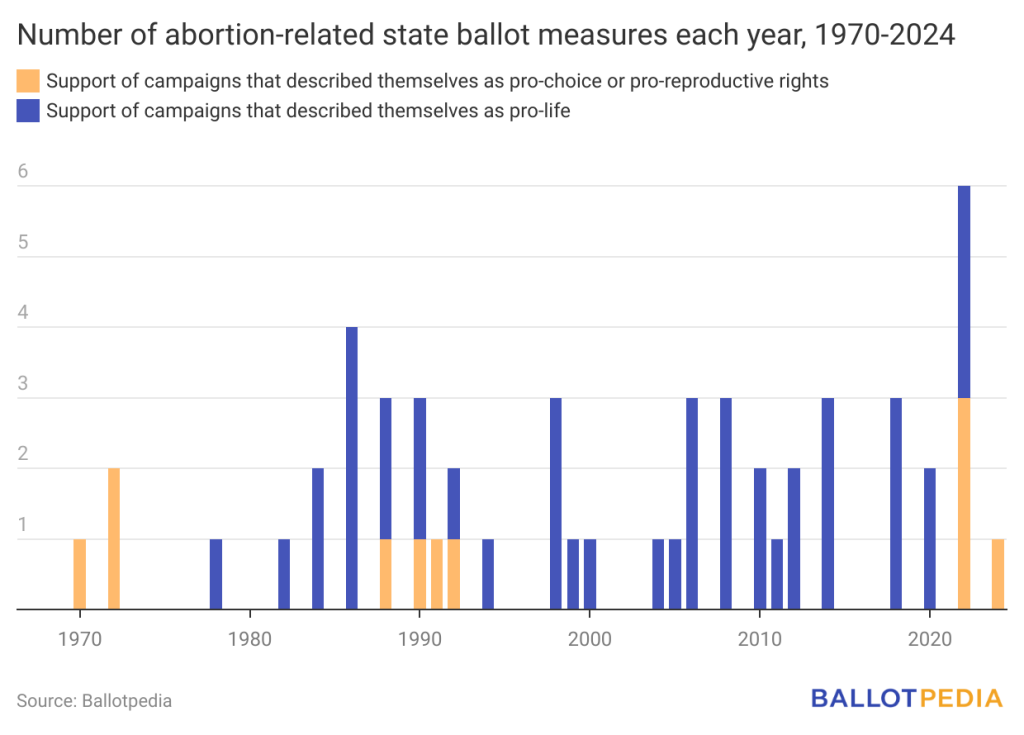Two campaigns in Ohio announced that they are joining efforts to put a statewide abortion-related initiative on the ballot in 2023.
On February 16, Ohioans for Reproductive Freedom and Protect Choice Ohio said that they would file an initiative that would be similar to a measure that voters approved in Michigan in November 2022. That measure provided a state constitutional right to reproductive freedom, which was defined to include abortion, contraceptives, and pregnancy-related matters.
Kellie Copeland, the executive director of Pro-Choice Ohio and member of Ohioans for Reproductive Freedom, said, “This grassroots initiative – by and for the people of Ohio – is foundational to ensuring access to abortion and the right to bodily autonomy, not only for ourselves, but for generations to come."
In order to qualify a citizen-initiated constitutional amendment for the November 2023 general election ballot, the campaigns must collect at least 413,488 valid signatures by the July 5, 2023, deadline. The requirement is equivalent to 10 percent of the votes cast for governor in 2022.
Dr. Lauren Beene, executive director of the Ohio Physicians for Reproductive Rights, said, “The lives and health of Ohioans have been at risk since Roe was overturned. That is why we must seize the earliest possible opportunity to ensure that doctors and patients, rather than politicians and the government, are empowered to make decisions about pregnancy, contraception and abortion.”
In a statement on February 16, Beth Vanderkooi, the executive director of Greater Columbus Right to Life, put out a statement opposing the effort. She said, “Far left special interests and highly partisan political operatives want to permanently place dangerous and confusing language into our Constitution. This is a disingenuous effort to force their extreme views under the guise of women’s health. Ohioans won’t be fooled by their radical and out of touch agenda.”
Following the Dobbs v. Jackson Women’s Health Organization decision by the U.S. Supreme Court, which held that the U.S. Constitution does not confer a right to abortion, there were five statewide abortion-related constitutional amendments that were decided on by voters. In 2022, voters in California, Michigan, and Vermont were the first to approve ballot measures to establish state constitutional rights to abortion. Voters in both Kentucky and Kansas rejected measures to provide that the state constitution cannot be interpreted to establish a state constitutional right to abortion.
Currently, there is one certified statewide constitutional amendment related to abortion on the ballot in 2024, and four proposed constitutional amendments that may appear on the ballot in either 2023 and 2024.
One certified constitutional amendment on the ballot:
- The New York Equal Protection of Law Amendment, which is certified for the 2024 ballot. The amendment would add language to the New York Constitution to prohibit the denial of rights to individuals based on ethnicity, sex, gender, gender identity, sexual orientation, disability, pregnancy, or reproductive status.
Four proposed constitutional amendments for the ballot:
- The Pennsylvania No State Constitutional Right to Abortion Amendment, which is proposed in the state legislature for the 2023 or 2024 ballot. This amendment would amend the Pennsylvania Constitution to say that the constitution grants no right to an abortion.
- The Iowa No State Constitutional Right to Abortion Amendment, which is proposed in the state legislature for the 2024 ballot. This amendment would state that the Iowa Constitution does not provide a right to abortion or require funding of abortion
- The South Dakota Right to Abortion Amendment, which is an initiative filed for the 2024 ballot. This amendment would make abortion legal in South Dakota with regulations after the first and second trimesters of pregnancy. To qualify for the 2024 ballot, the initiative petitioners must file 35,017 valid signatures by November 5, 2023, a year before the election.
- The Florida Right to Life of Preborn Individual Initiative, which is an initiative filed for the 2024 ballot. This amendment would amend the Florida Declaration of Rights to state that that "the right to life of the preborn individual is God-given, thus unalienable and recognized accordingly". To qualify for the 2024 ballot, the initiative petitioners must file 891,589 valid signatures by February 1, 2024.
Historically, from 1970 to November 2022, there were 53 abortion-related ballot measures. Forty-three (81%) of these had the support of organizations that described themselves as pro-life. Voters approved 11 (26%) and rejected 32 (74%) of these 43 ballot measures. The other 10 abortion-related ballot measures had the support of organizations that described themselves as pro-choice or pro-reproductive rights. Voters approved seven (70%) and rejected three (30%).

Additional reading:



